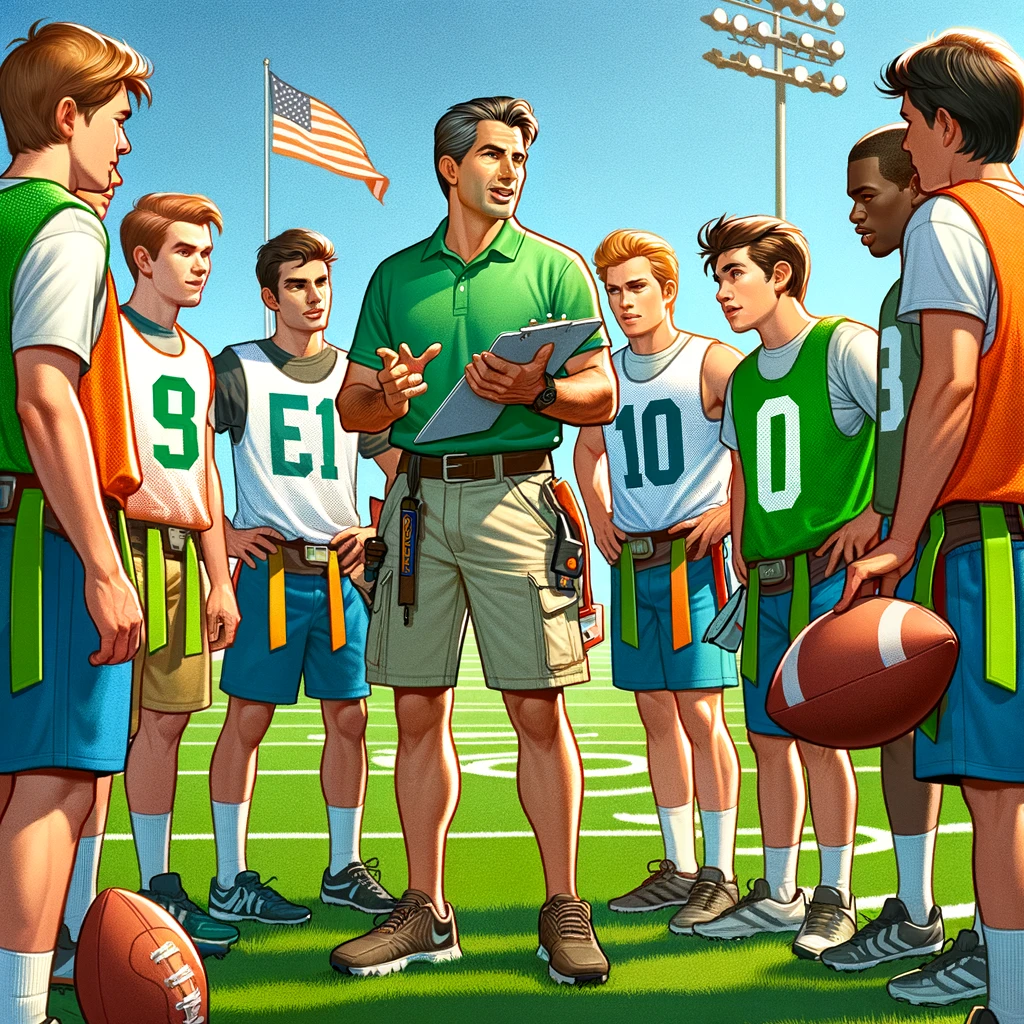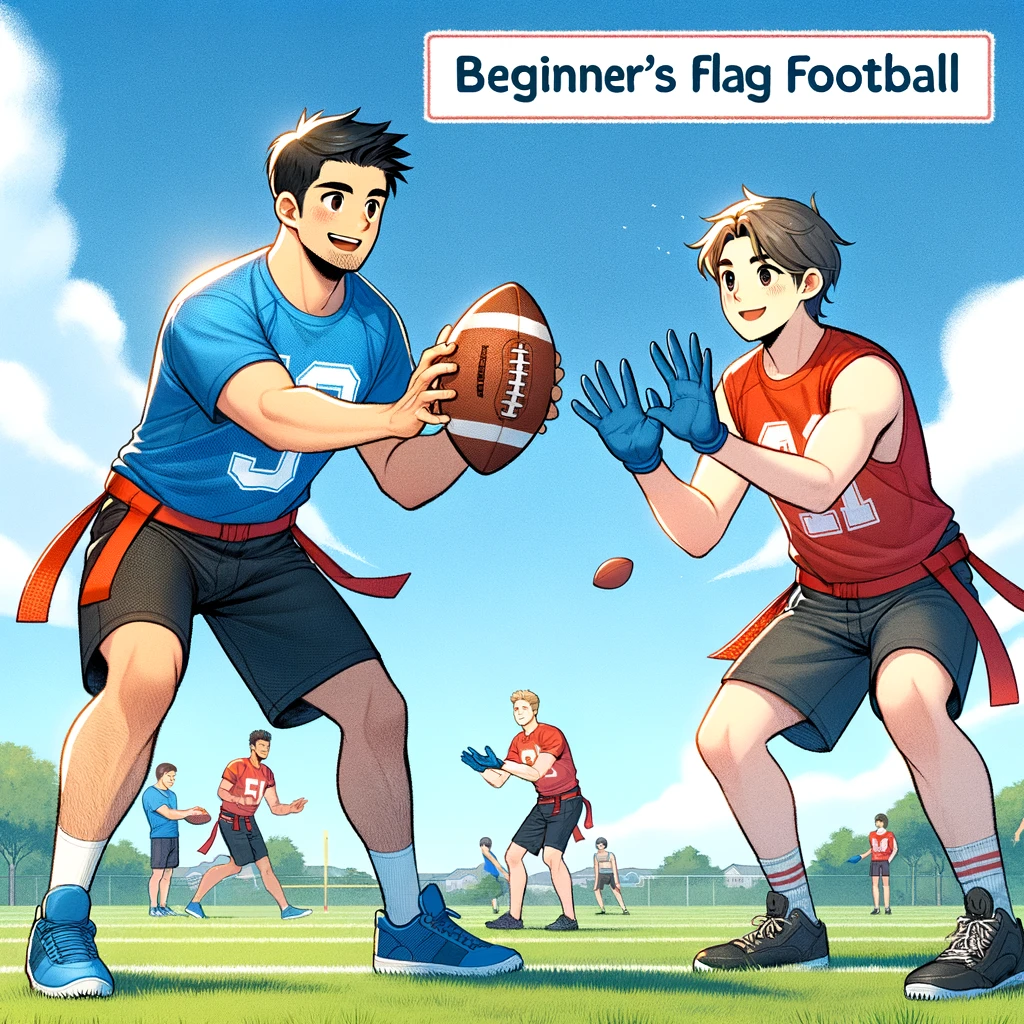Essential Flag Football Rules for Coaches and Players

Flag football is an engaging sport that provides a safer alternative to tackle football. It emphasizes speed, agility, and strategy, making it an excellent choice for people of all ages. As a coach or player, having a solid understanding of the game’s rules is essential for both enjoyment and strategy. This comprehensive guide delves into the essential rules of flag football, tailored for coaches and players who are keen to master the game.
Understanding the Game
Flag football is a variant of American football where physical tackling is replaced by removing a flag from the ball carrier. This key difference demands a unique set of rules and strategies, focusing more on speed and agility.
Field Setup and Team Composition
- Field Dimensions: A standard field is 70 yards long and 30 yards wide, divided into four zones, with 10-yard end zones.
- Team Size: Teams are generally 7-on-7, but variations exist (5-on-5, 6-on-6, or 8-on-8, depending on the league).
Starting the Game
- Coin Toss and Possession: A coin toss decides initial possession. Teams can choose to start on offense or defense.
- Positioning: The offensive team starts with the ball on their 5-yard line.
Scoring Mechanics
- Touchdowns: Scoring a touchdown (crossing the opponent’s goal line with the ball) earns 6 points.
- Conversion Attempts: After a touchdown, teams can attempt a 1-point conversion (from the 5-yard line) or a 2-point conversion (from the 10-yard line).
- Safeties: If the offense is tackled in their own end zone, the defense earns 2 points.
Gameplay Rules
- Downs: Teams have four downs to cross midfield; once crossed, they get another set of downs to score.
- Passing and Receiving: All passes must be forward and received beyond the line of scrimmage. Lateral or backward passes are also permitted.
- Running the Ball: Running is generally allowed, but some leagues restrict running plays near the end zones. Quarterbacks cannot run, unless the ball was handed off first.
- Rushing: Some leagues allow defenders to rush the Quarterback if the defender was lined up 7 yards behind the line of scrimmage. While other leagues allow rushing after 5 seconds has passed.
Flag Pulling and Tackling
- Flag Pulling: A play ends when a defender pulls a flag from the ball carrier’s belt.
- No Physical Tackling: Players must avoid physical contact. Tackling, blocking, and screening are penalized.
Blocking and Physical Contact
- Screen Blocking: Physical blocking is prohibited. Players use body positioning without contact to impede defenders.
- Contact Penalties: Any significant physical contact is typically penalized to maintain safety.
Types of Penalties
- Offensive Penalties: False starts, illegal forward passes, and offsides are common.
- Defensive Penalties: Offsides, pass interference, and rough play are typical defensive penalties.
- Penalty Enforcement: Penalties generally result in loss of yardage or automatic first downs.
Turnovers and Special Situations
- Interceptions and Fumbles: Turnovers can occur through interceptions. Fumbles, however, usually result in a dead ball.
- Punting: Some leagues allow punting on the fourth down, while others do not.
Coaching Strategies and Tips
- Playbook Development: Coaches should develop plays that utilize short passes and quick movements.
- Player Development: Focus on enhancing players’ skills in flag pulling, passing, and evasive maneuvers.
Sportsmanship and Fair Play
- Respect and Integrity: Coaches and players should always exhibit respect for all participants.
- Focus on Enjoyment: While competition is important, the primary focus should be on enjoying the game and ensuring a positive experience for all players.
By understanding these rules, coaches and players can effectively navigate the exciting world of flag football. The game’s emphasis on skill and strategy over physical strength makes it an enjoyable sport for everyone. Always remember, the spirit of flag football lies in its fun, teamwork, and sportsmanship.


